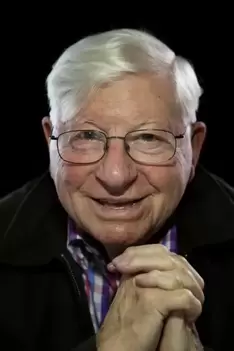Bill Armstrong Modest but prolific recorder and publisher of Australian music.

After an early career as an electrical engineer Armstrong, set up his own "recording business" recording his friends' bands (onto wire in the very early days) on the verandah of his home. Soon he was recording country court proceedings and civil ceremonies like the opening of Geelong's Shell Refinery by Sir Robert Menzies, and the first recording on wire in the Victorian Law Courts.
By the early 1950s, Armstrong had established his own record labels, Paramount, Magnasound and Danceland, releasing records for local jazz artists. By the mid-50s, Armstrong was working as a "balance officer" at ABC Radio, producing live-to-air programs, outside broadcasts and variety shows and working with the likes of Graham Kennedy. In 1956, he was charged with overseeing the PA system at the main stadium of the Melbourne Olympic Games.
In 1965 Armstrong set up Armstrong Studios at Albert Road. It was here that he embarked on a fruitful collaboration with equipment designer and manufacturer Graham Thirkell. Employing world-class recording engineers like Roger Savage and Ernie Rose, coupled with the top technology, Bill’s Armstrong Studios enjoyed an unassailable position in the pantheon of local world-class recording venues, resulting in not only attracting the cream of local artists, but also many visiting international artists who chose to record at Armstrongs.
After spreading his operations across several terrace houses along Albert Road, he finally outgrew the Albert Road location, and moved to a new location at 180 Bank Street which he had converted, at no small expense, into a five studio complex – which was, at the time, the largest in the Southern Hemisphere.
In 1974 Bill sold Armstrong Studios to the publishers of The Age newspaper, David Syme & Co. Syme brought another television production acquisition into the Bank Street premises and renamed the operation AAV – Armstrong Audio Video.
In 1978 the Australian Government established ethnic radio stations 2EA and 3EA to provide muti-lingual radio broadcasting to the migrant communities in Sydney and Melbourne. Bill Armstrong was contracted to provide studios and technical/operations staff for these stations until 1989 when, as part of The Special Broadcasting Service (SBS), they established their own facilities.
In 1979 Bill was part of a consortium which successfully applied for one of the two initial Melbourne commercial FM licences. Amongst a field of nine applicants (for two licences), Melbourne FM Radio Pty Ltd stood out with its strong mix of entertainment and business heavyweights. With the callsign EON-FM (3EON) the station went to air in July 1980, and Bill served as its Managing Director until its sale to the 2MMM interests in 1986.
Following the sale of his interest in EON-FM (now TripleM – 3MMM), in 1986 the Government appointed Bill to the media regulator, The Australian Broadcasting Tribunal (ABT). He served on the Tribunal for two years and participated in many ABT hearings involving media ownership and takeovers, Australian music content on radio, children’s content on TV, and the granting and renewal of radio and TV licences.
Bill remained active in music recording and publishing, particularly in his beloved field of Australian jazz until his passing.